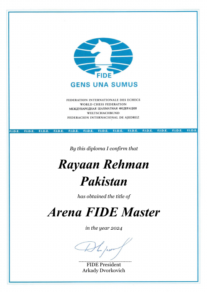What to Consider Before Upgrading Your CPU in 2024 and Beyond [Buyers Beware]
If you’re planning to buy a new PC or laptop in 2024 or beyond, it’s crucial to be aware of current issues with both Intel and AMD processors. Recent Intel and AMD CPUs have faced various stability and performance challenges, which could impact your decision. Additionally, Intel introduced a new CPU naming scheme in 2023, ending a 15-year tradition. In this blog post, I’ll clarify these new Intel names and series, as well as provide a comprehensive overview of recent AMD processor developments, so you can make an informed choice and avoid potential pitfalls.
Intel’s new branding scheme for CPUs – A change from “Core i” Names
Beginning in 2023, Intel revamped its long-standing “Core i” branding to introduce the new “Core” and “Core Ultra” series. The familiar “Core i” names have been simplified, dropping the ‘i’ to become Core 3, Core 5, and Core 7, instead of the previous Core i3, i5, and i7. The new “Core Ultra” branding now represents Intel’s premium processors, aimed at delivering top-tier performance for demanding applications.
For a quick refresher, here are some popular names from recent generations of Intel CPUs:
| Intel CPU Generation | Popular Name | Launch Year |
|---|---|---|
| 10th Gen | Comet Lake | 2020 |
| 11th Gen | Rocket Lake | 2021 |
| 11th Gen (Mobile) | Tiger Lake | 2020 |
| 12th Gen | Alder Lake | 2021 |
| 13th Gen [Caution!] | Raptor Lake | 2022 |
| 114th Gen [Caution!] | Meteor Lake | 2023 |


Architecture Changes in Intel CPUs: A Simplified Overview Since 12th Gen
Here’s a simplified table for a novice buyers, comparing Intel CPUs since the 12th Gen:
| Generation | Branding | Architecture | Target Use | Launch Year |
|---|---|---|---|---|
| 12th Gen | Core i5/i7/i9 | Alder Lake | General performance (laptops/desktops) | 2021 |
| 12th Gen HX | Core i5/i7/i9 | Alder Lake-HX | High-performance laptops (gaming, workstations) | 2022 |
| 13th Gen [Caution!] | Core i5/i7/i9 | Raptor Lake | General performance (laptops/desktops) | 2022 |
| 13th Gen HX | Core i5/i7/i9 | Raptor Lake-HX | High-performance laptops (gaming, workstations) | 2023 |
| 14th Gen [Caution!] | Core, Core Ultra | Meteor Lake | Balanced performance, AI tasks (laptops) | 2023 |
Key Points for Novices:
- Notic the HX processor series, it is different architecture than previous processors.
- Core i5/i7/i9: Used in 12th and 13th Gen CPUs, are ideal for general use and high-performance tasks.
- Core Ultra: New branding in 14th Gen, focused on AI and advanced performance.
- HX Processors: High-end CPUs for gaming and professional workstations in laptops.
- Meteor Lake introduces Core and Core Ultra branding, while Core HX follows the traditional Core i5/i7/i9 branding.
- AI Capabilities: Meteor Lake has integrated AI accelerators (NPU), which are absent in Core HX.
- Core Count: Core HX has higher core counts, especially in the 13th Gen Raptor Lake-HX, with up to 24 cores. Meteor Lake focuses on a balanced approach with fewer cores.
- Power Efficiency: Meteor Lake emphasizes power efficiency for thin and light devices, while Core HX targets raw performance with higher power consumption.
Now that you’re familiar with the new Core and Core Ultra branding as well as the 13th and 14th Gen Intel CPU lineup and their comparisons, let’s delve into the issues with these processors. I’ll also provide guidance on how to avoid potential problems when purchasing a new PC or laptop.
Caution: Stability Issues with Intel Core 13th and 14th Gen Processors
13th Gen (i9-13900K, i7-13700K, i5-13600K): Users have reported stability problems, especially under heavy use, with many seeking refunds due to inadequate support.
14th Gen (i9-14900K, i7-14700K, i5-14600K): Similar issues as the 13th Gen, including performance drops, degradation and crashes. These processors might not be reliable for gaming or intensive tasks.
So, if you’re looking for a hassle-free experience, it’s best to stick with Intel Core 12th Gen CPUs. Recent 13th and 14th Gen models have faced significant stability issues and performance problems, leading to user frustration. By choosing a 12th Gen processor, such as the i9-12900K, i7-12700K, or i5-12600K, you’ll avoid these issues and enjoy reliable performance without the headaches.
Not Just Intel: AMD CPUs Also Facing Performance Issues
With the issues and updates surrounding Intel CPUs addressed, let’s shift our focus to AMD processors. The following table compares AMD Ryzen CPUs starting from the Ryzen 5000 series through the latest Ryzen 9000 series. This overview highlights the key features and target uses of each series to help you understand AMD’s offerings and make an informed decision.
Here’s a table comparing AMD Ryzen CPUs starting from the Ryzen 5000 series, this table provides a snapshot of AMD Ryzen CPUs latest 9000 series, highlighting their target uses and key features.
| AMD CPU Generation | Popular Models | Architecture | Target Use | Launch Year |
|---|---|---|---|---|
| 5000 Series | Ryzen 9 5950X, Ryzen 7 5800X, Ryzen 5 5600X | Zen 3 | High performance, gaming, productivity | 2020 |
| 6000 Series | Ryzen 9 7950X, Ryzen 7 7800X, Ryzen 5 7600X | Zen 4 | Next-gen performance, gaming, productivity | 2022 |
| 7000 Series [Caution!] | Ryzen 9 7950X3D, Ryzen 7 7800X3D, Ryzen 5 7600X3D | Zen 4 (3D V-Cache) | High-performance gaming, demanding applications | 2023 |
| 9000 Series [Caution!] | Ryzen 9 9950X, Ryzen 7 9800X, Ryzen 5 9600X | Zen 5 | High-performance computing, gaming, future-proofing | 2024 |
Key Points:
- 5000 Series: Known for its excellent performance and efficiency, suitable for gaming and productivity.
- 6000 Series: Features Zen 4 architecture, bringing significant performance improvements and support for new technologies.
- 7000 Series: Introduces 3D V-Cache technology for enhanced gaming performance and demanding applications.
- 9000 Series: Upcoming processors expected to continue AMD’s trend of high performance with new Zen 5 architecture.
AMD Buyer Alert:
- If you’re considering an AMD CPU, it’s important to be aware of the current landscape. The Ryzen 9000 series has faced significant stability issues, leading AMD to temporarily pause sales and address quality concerns. Although AMD has promised fixes for performance problems affecting these processors, potential buyers should remain cautious.
- The Ryzen 7000 series, has also encountered its own set of challenges. Users have reported various issues, which can lead to frustrating experiences.
- For those looking for a reliable option, the Ryzen 5000 series remains a strong choice. These processors have proven to deliver stable performance without the recent complications seen in newer models.
Summary
Intel’s new Core and Core Ultra branding reflects a significant shift in their product lineup, both the 13th and 14th Gen CPUs have encountered stability problems. Similarly, AMD’s Ryzen processors, particularly the 9000 & 7000 series, have faced their own set of challenges. To avoid potential pitfalls, consider sticking with well-established and stable options from the 12th Gen Intel CPUs or the Ryzen 5000 series. By staying informed about these developments, you can make a more confident and informed decision when purchasing your next PC or laptop.



